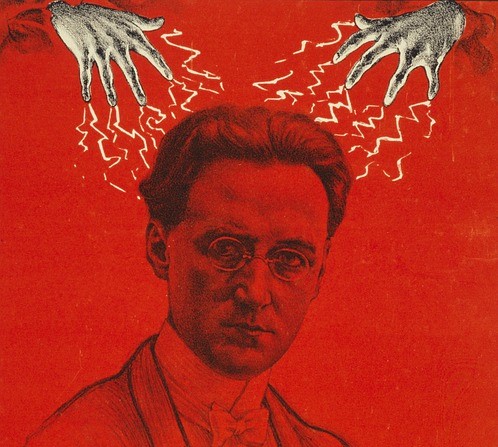 |
| Credit: Pixabay |
I apologise, but I have to post pone this month's Book-To-Movie review to next Monday. I had a dentist appointment last Friday that took longer than expected so didn't have enough time to plan and write the review for today. Because of this, I thought I'd talk about one of the books from last blog post's Summer Sci Fi Reading List. I had said last week that I didn't plan on stopping the reading of any of the books on the list to switch to another book because so far, the ones that I were reading were good. Well, when I said "so far", I really did mean it. It was only the next day when Jeff VanderMeer's novel, "Borne", proved not to be so good once I came to a scene where the protagonist does something that’s there much more for shock value than for anything else.
The Shock Factor in 'Borne'
Instead of writing a synopsis of "Borne" for this post, I'll just quote the synopsis I gave last week. So, in “Borne”
"A young woman, Rachel, and her bioengineering boyfriend, Wick, discover and adopt a small blob-[like] creature that grows both physically and intellectually each day. As it does, it becomes more threatening to the post-apocalyptic city the two people reside in."
(The square brackets are around "like" in the word "blob-like because I just now noticed that I had misspelled it as "lkie" in last week's post. I apologise for that.)
As indicated in the synopsis, Rachel is the protagonist of this novel and so the story takes place through her viewpoint and is also told by her. She takes into her home the creature that she name's Borne, cares for it and teaches it human behavior. (It even picks up on human speech.) She defends it when Wick wants to cut it open to analyise it. Because of these actions on her part, you care for and respect this character. Or at least I did.
Until about a quarter of a way into the story. There, a random shock bomb is dropped on the reader. The narrator/protagonist directly refers to a time when, in retaliation toward Borne over a disagreement, she let out flatulence.
That’s totally out of character for the main character. It’s an act that seems to have nothing to do with the rest of the story and so not to move the story forward. In fact, it’s conveyed in a single sentence within parentheses. That nearly shows you right there it wasn't integral to the plot. It seems like this sort of thing hasn't been a problem with the protagonist in science fiction literature until fairly recently.
The Cult of Shock and Disgust
So much of American society has become addicted to sensual entertainment. Too many Americans simply want to be amused or shocked rather than delighted over a character or situation, regardless of how undesirable the situation would be in real life. Because of this, a cult of shock and disgust has formed in this nation.
The problem isn't so much with shock value as a genre. Shock value can be considered a valid device in fiction if the overall work was made for it and for a worthwhile purpose. The problem is when shock value as a device for its own sake goes mainstream in a genre.
I've read VanderMeeer's "Annihilation", published three years before “Borne, and thought it was really good. It didn’t have uncontextualised shock scenes. It stuck to the main situation of the story and was consistent in the characters’ actions. So, a shock and disgust scene such as in “Borne” is an indication that it may be more about the readers’ desires than the author’s vision especially when such scenes have increased in movies and television within the past decade.
I could go on with this and other examples where the Cult of Shock and Disgust takes over but, unfortunately, I don't have the time to do it here. But I will go over this problem in storytelling some more in future posts. Well, now I have to find another book to replace "Borne" with on my summer reading list. But that’s actually okay. There are too many other things out there that I badly want to read than to waste my time with a story that drops a shock bomb when it’s not even built off of shock value conventions. If I decide by next week which book to replace “Borne” with, I’ll let you know.
Smashwords Summer Book Sale Still Going
Don’t forget, Smashwords' July Summer Sale is going on right now! For those of you in the southern hemisphere of the planet, this is the Winter Sale.
Again, for this sale, I've reduced my books’ prices to 50% and 100% off! In other words, some of my books have been reduced to as much as free! Plus, thousands of other authors and publishers of sci fi, fantasy, horror and many other fiction and non-fiction genres are also offering super markdowns on their books. The Smashwords Summer Sale runs to the end of July, but not all books may remain discounted until then so check it out now at the links above!
Do you think too much science fiction and fantasy literature has lately been sacrificing story and character for shock value? Have you found anything interesting at the Smashwords Summer/Winter Book Sale?
Until next time. . .
Considering most people don't like shock for shock value only, it's disappointing when writers continue to drop it in.
ReplyDeleteThat story line reminds me a bit of the movie Splice.
I've heard of the movie but I haven't seen it. If it's like Borne as far as shock goes I won't bother seeing it. If it's like it as far as story goes I just might see it.
Delete